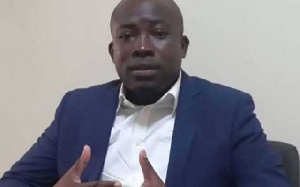Bulk Distributing Companies (BDCs) and Oil Marketing Companies (OMCs) and the Bulk Oil Storage and Distribution Company Limited (BOST) are in disagreement over is responsible for dumping of products that is depriving the country over of over one billion Cedis.
The Managing Director of BOST, Mr Alfred Obeng Boateng, blamed BDCs and OMCs for the practice of dumping, saying that those products commonly ended up in local filling stations, with which BDCs and OMCs dealt with.
However, Senyo Hosi, the Chief Executive Officer of the Ghana Chamber of Bulk Oil Distributors, and Mr Tizard Ansah, the Risk Management Officer of the Association of Oil Marketing Companies, rejected the allegations and said they were rather fighting the menace.
The exchanges took place yesterday at the National Policy Summit.
They were speaking on the topic:’Innovations and Opportunities in Government’s New Energy Sector Management Programme’.
Mr Boateng announced that Cabinet has directed that all petroleum products meant for export from Ghana onto the Sahelian market be channelled through the BOST.
According to him, the directive which takes effect next week, is in a bid to clampdown on the dumping of such products onto the domestic market.
Per the directive, he said, all petroleum products meant for export to the Sahelian market should be given to BOST at its APD in Accra, who would then transport it to its Bolga Depot, where the BDCs could then pick up the product for delivery to the final destination.
Mr Boateng said the dumping of petroleum meant for export onto the domestic market was a major challenge hence the directive.
He stated that in line with the directive, BOST intended to expand its depots in Bolga and Buipe and also begin work on the pipelines to transport the oil from Accra to those destinations.
The pipelines, he said, would reduce reliance on road transport for the transportation of the product, which allowed for the dumping.
Mr Hosi, however, disagreed with the Managing Director of BOST’s assertion that BDCs and OMCs were to blame for the dumping.
He maintained that the BDCs were not to blame for dumping, having been the ones to first raise concerns of the phenomenon, which led to the Cabinet decision.
“Filling stations are not BDCs, BDCs don’t run fuel filling stations; BDCs don’t export, it’s export licensees who export,” he stated.
Mr Hosi said the BDCs were rather those who suffered most from such activities, and thus the recommendations the Chamber made to Cabinet, which they fully supported.
However, that measure alone, he said, was inadequate.
Mr Hosi also challenged the figure quoted by the BOST MD, saying, the figure was inaccurate since the National Petroleum Authority had estimated the losses at GH?850 million.
Ansah condemned the blanket allegation by the BOST MD against the BDCs and OMCs, saying although there may be bad nuts in the industry, it was inappropriate to blame the whole industry for the problem.
He called for better implementation of regulations in the sector to address the problem.
Ansah also noted that while the directive from Cabinet was a start in addressing the issue, there was need for additional measures since dumping could still take place with the directive by creating an illegal market in the north or bringing dumped products back to Accra.
He called for GPS tracking of trucks (BRVs) used in transporting the products to know where the products would end up.
Business News of Wednesday, 17 May 2017
Source: thefinderonline.com













